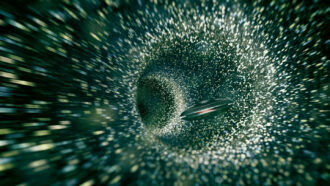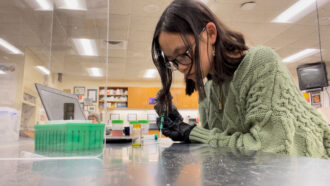All Stories
-
 Health & Medicine
Health & MedicineLet’s learn about allergies
Allergies are caused by the body’s immune system overreacting to harmless substances.
-

-
 Planets
PlanetsPlanets like Star Wars’ Tatooine could be fit for life
Like Luke Skywalker’s home, planets orbiting two stars may be plentiful. A new computer model suggests that many of those worlds could sustain life.
-
 Space
SpaceThe next astronauts to walk the moon will be more diverse than the last
Space agencies are preparing to send the next generation of astronauts to the moon and beyond. Here’s how future crews will differ from the last.
-
 Health & Medicine
Health & MedicineNew brain scans may show if a concussion has not yet healed
Concussions change certain brain waves, and delta waves may be the best signs of when teens can return to competitive sports.
-
 Tech
TechThink of this new tech as sunglasses for our windows
Keeping buildings cool can use a lot of energy. Thanks to quantum computing, engineers designed a coating to cut the warming light that enters windows.
-
 Earth
EarthScientists Say: Equinox and Solstice
Equinoxes and solstices mark the maximums, minimums and mediums of hours spent in daylight.
-
 Archaeology
ArchaeologyMinding your mummies: The science of mummification
In this science project, you will learn about the rituals and science of mummification by mummifying a hot dog.
-
 Space
SpaceSpacecraft traveling through a wormhole could send messages home
A probe going through a wormhole should be able to send messages home before such a tunnel forever closes, a new computer model finds.
-
 Climate
ClimateCreating less new stuff could greatly help Earth’s climate
Instead of throwing unneeded things away, scientists recommend moving to a cycle of reducing, reusing, repairing and remaking old things into new ones.
-
 Tech
TechCan we build Baymax?
Baymax may be science fiction, but soft robotics is not. Experts break down Baymax’s parts and show what’s coming in the future.
-
 Health & Medicine
Health & MedicineHigh school scientists tackle community health and safety risks
Three finalists in the 2023 Regeneron Science Talent Search aim to improve suicide risk assessment, treatment of sickle cell disease and more.